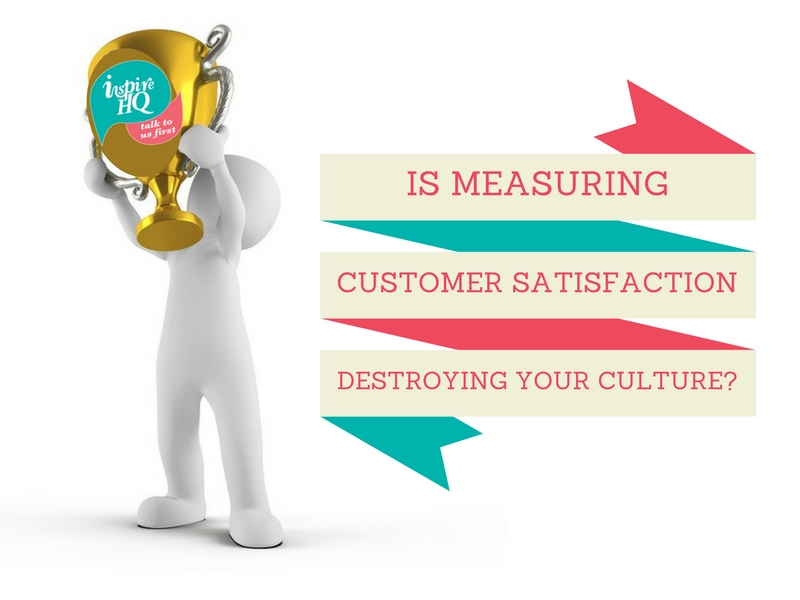Customers are crucial to every business and in todays’ world of smart phones and apps it has never been easier to rate our experience and satisfaction with a product or service. Think Trip Advisor, Rate My Agent for the Real Estate Industry, Vivino for rating Wine, and not to mention the customer satisfaction ratings on sites like Stayz, Hotels.com – the list goes on and on. And there is still the trusty feedback forms left in our motel rooms, or surveys emailed to us asking us to provide feedback or the annual customer satisfaction survey that companies invest thousands of dollars in by engaging an external provider to gather the data.
Stats pop up daily on the impact of social media reviews and recommendations and how consumers base their buying decisions on these reviews and recommendations. With this heightened focus on customer satisfaction, of course as a business owner or manager you want to be gathering customer feedback and satisfaction levels. It’s crucial data for improving your service delivery, for identifying gaps in the market, for innovation.
But are your efforts to collect customer satisfaction data building or destroying your culture?
Many of us are familiar with the famous Richard Branson quote “If you look after your staff, they’ll look after your customers.”
With that quote in mind; when we develop our customer satisfaction questions, when we determine what we will do with that information and how we will use it to reward the right behaviours, are we considering the culture that will ultimately result?
I’ve been pondering this scenario after spending two weeks visiting Vietnam (if you haven’t been I’d highly recommend it!) Everywhere I went from restaurants, tourist attractions, motels and resorts to tailors for having clothes made; everyone asked about my experience and if I could share my feedback on Trip Advisor. What took me by surprise was their focus on making sure they were individually named in that feedback. Staff went to the extent of writing their names on pieces of paper so I would remember to name them. I fully appreciate the impact apps like Trip Advisor are having on businesses in that space. Trip Advisor was my best friend for my entire holiday. Even the feedback forms asked me to name specific staff members who had impressed me. To be honest though, I found it a little disheartening that they were so focused on individual performance. I can only guess that customer feedback about specific team members was linked to job security and future prospects, reward and recognition. Maybe it is also a cultural thing and if anyone can shed some further info on this I’d love to learn more about it.
What I think these businesses have failed to recognise is that my experience at their resort or their restaurant wasn’t determined by one individual. Yes, the waiter might have been friendly and welcoming, attentive and responsive but if the chef had done a poor job of cooking my meal there is no way I would have provided glowing feedback. Or if the chef or the team of chefs did a brilliant job, I couldn’t acknowledge their individual efforts because they are the team members that get the job done behind the scenes. I didn’t get to meet these behind the scenes team members and they didn’t get the opportunity to write their name down and ask me for a recommendation.
We set out with the greatest intentions when developing our feedback forms and surveys but I see many organisations lose sight of what impact the questions asked and data gathered has on their employees. Too often it is in conflict to the behaviours we are trying to encourage and the culture we are trying to build. I’m not saying don’t measure customer satisfaction. This information is crucial for helping us improve our organisations but it’s about the type of questions we ask and what we focus on, how we measure our success. Is that through individual contribution or a collective team effort? Are we encouraging our own team members to compete against each other for a recommendation or are we encouraging them to work together to exceed customer expectations? And, how does the culture we build in turn impact customer satisfaction? Based on my recent personal experiences I have to say being confronted with multiple requests from team members to name them in my feedback did slightly tarnish my otherwise wonderful experiences, it made me question their genuineness. Providing exceptional customer service shouldn’t be about trying to get a customer recommendation.
If we get how we measure customer satisfaction wrong, the ramifications can be disastrous. Poor culture, lack of team work, disengagement, competitiveness amongst team members, behind the scenes team members feeling undervalued and not appreciated. When those kinds of behaviours start to work their way in to your workplace you are definitely not looking after your employees who in turn won’t be looking after your customers.
How is your customer satisfaction measurement really impacting your culture?


